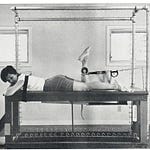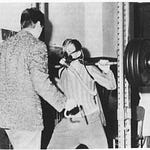For several years, I have had scribbled down in my notes an idea for an essay that I had planned to title, “What will happen when Bobby Knight dies?”
Obviously, I never got around to writing this essay, and on November 1, 2023, legendary basketball coach Bobby Knight passed away. Here, I want to share some notes that I had written for this unfinished essay. I think the notes will suffice for understanding what the essay was intended to be about.
In the essay, I was going to present the idea that society is not perhaps adequately replacing iconic male figures, and that the death of Bobby Knight, who is one of these iconic figures, might represent the end of a particular era or generation of men who boys and other men looked up to in awe, admiration, and in interest.
The reason that I believed that this was an important topic to discuss is because of what has been called the “Boy Crisis,” in which boys and men do not seem to be doing particularly well these days across a number of life outcomes, for example, delinquency, criminality, imprisonment, and a myriad of other issues.
I was going to explain how the male figure that Knight was – a strict disciplinarian who had a no-non-sense approach to coaching and education and demanded perfection and professionalism from his players – seems harder to find these days. And, I believe it is this sort of man – the man who delivers clear, authoritative, and decisive messages – that is desperately missing throughout various realms of society. Consequently, boys today might be lacking the same type of iconic male figures that someone like me, who was born in the 1980s, had the opportunity to look up to.
In the essay, I was going to ask readers to think about the various athletes, professional wrestlers, actors, musicians, and politicians that they looked up to as kids. And then I was going to ask who are today’s boys looking up to? Are their heroes as clearly defined as they were for boys like me in the 1980s and 1990s? To me, it seems that we are missing a certain male or masculine energy in society, and that we are surviving primarily on the fumes of that fuel left by the likes of Bobby Knight.
I was going to ask readers to think about male icons in professional wrestling. In the 1980s and 1990s, professional wrestling was booming and most boys had a favourite wrestler to look up to – Hulk Hogan, Ultimate Warrior, Sting, Bret the Hitman Hart, or Ricky the Dragon Steamboat. But what has become of professional wrestling today? From what I can tell, it is not the mass gathering of male icons that it was 30 or 40 years ago. In fact, some of its more interesting draws have been when they have brought older wrestlers out of retirement, evidence that we are riding on the masculine fumes of a previous generation.
Then, I was going to ask readers to think about male rock bands. Today, people appear to be clinging to the past, wanting desperately to see the likes of Metallica, Iron Maiden, and AC/DC give it one more go. Yes, attendees are buying tickets because they want to hear the music and experience the spectacle, but they are also wanting to see the faces of those men whose posters use to hang on their wall, and they want to watch those men display their mastery over their instruments.
Then, I was going to ask readers to think about Hollywood. In the 1980s and 1990s, we had numerous male icons to look up to. We had Sylvester Stallone, Mel Gibson, Tom Cruise, Harrison Ford, Bruce Willis, Arnold, and many others. But who are the young and up and coming male actors of today for boys to look up to?
In closing, a lot of news and stories are likely to be shared about Bobby Knight over the next several days. Some of this news will frame Knight in a positive light, owing to many of the characteristics that I described earlier. Other news will focus on Knight’s not-so-admirable characteristics, such as his bad temper. Either way, it does not change the fact that an American male icon is now gone. And perhaps his passing can be used as a time for reflection about boys and men and their development and their roles in society. It is hard to imagine the victim culture of today’s university campuses ever taking hold if the likes of Bobby Knight were staffed throughout the university offices and classrooms. Can you imagine an interaction between Bobby Knight and some of today’s entitled campus students? It would be an ugly site for the student.
So, now that iconic basketball coach Bobby Knight is no longer with us, the question of the essay that I intended to write, “What will happen when Bobby Knight dies?” is no longer appropriate. Now, we have a more pressing question to contemplate: “What will happen now that Bobby Knight is dead?”
Related Content at The Nuzzo Letter
SUPPORT THE NUZZO LETTER
If you appreciated this content, please consider supporting The Nuzzo Letter with a one-time or recurring donation. Your support is greatly appreciated. To donate, click the DonorBox logo. In two simple steps, you can donate using ApplePay, PayPal, or another service. Thank you.


















Share this post